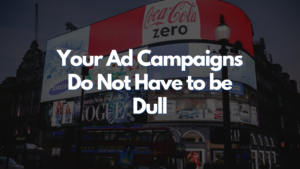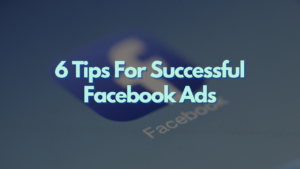Digital Marketing Changes in 2021
7 min read
2020 was an eventful year, especially in light of COVID. However, a lot has changed, from algorithms to people going after monopolies like Facebook, to voice search commanding almost half of all searches in the United States, according to Comscore. But now that 2020 is over, what will happen in 2021?
If you’re seeking the digital marketing holy grail, I’m sorry to break it to you, but there isn’t one anymore. Because of COVID, the digital marketing landscape is saturated; everyone is going online, and what would have happened five years ago has already happened because of COVID.
In essence, it has driven all of these firms online, making it extremely competitive, and everyone now uses digital marketing. So, how do you get a head start on the competition in 2021 and win? The first trend I’d like to point out to you is page speed. It will be more vital than ever before. Yes, 5G is available right now, but check about and see how many areas have 5G, 4G, or whatever connection is available, and it still takes a long time for a webpage to load.
Just because your connection is fast doesn’t indicate that A) the page loads quickly, and B) you’re in an area where the reception is capable of providing that level of service. We haven’t arrived yet. As a result, you must ensure that your website loads extremely quickly. Not only are we seeing an increase in conversions as a result of sites improving their page performance, but we’re also seeing an increase in traffic and ranks as well.
So, if you have a website, make sure it’s optimized and loads quickly.
The majority of respondents say, “Yeah, I already utilize CDNs.” But, if you use CDNs for static images and static texts, what about non-static files? And by doing so, by putting your non-static content on a CDN, you may improve your load time as well as your overall SEO rankings, traffic, and conversions. We’re witnessing up to a 7% improvement in conversion rates. Now, you may notice a bigger conversion rise, but if that’s the case, it indicates your traffic has increased, which means your speed was slow to begin with and needs to be addressed.
The second trend we’re witnessing is that content length will become less important. I’m referring to text-based information. Everyone knows that if you want to rank in the top ten on Google, you need at least 2,000 words. So, if you ask Google how to tie a tie, do you believe it wants to show you 2,000 words on how to tie a tie? Why, let’s face it, don’t they? Because you don’t want to see 2,000 words on how to tie a tie as a user.
You want to see an image, animated gif, or video that quickly explains how to knot a tie so you can go on with your day. That’s exactly what’s going on with a lot of text pieces. Everyone used to develop material based on the length being like, “Oh, if we want to rank at the top, it has to be really long, it has to have all these keywords in it, and this proportion.” That’s all there is to it.
The length of text-based information is less important than the quality, and Google is relying more on user signals, but here’s the kicker: I want you to increase the length of your audio and video in 2021. We’ve noticed that longer audio and video versions perform better than shorter versions of three, four, or even five minutes. On the other hand, if you make your audio and video 20-30 minutes long, we don’t think it will have as much of an impact as if it were only 10 minutes long.
So anything between 10 and 30 minutes will suffice. You can make it 30 minutes if you need to, but anything less than 10 minutes, say two, three, or four minutes, will severely limit your reach when it comes to video and audio content. As I previously stated, and this is trend number three, there is no Holy Grail of digital marketing since it is extremely competitive. That means one thing: a single hack will not provide you with the silver bullet that will enable you to outperform your competitors.
It’s all about securing those small gains. Dave Brailsford, a British cycling coach, had a philosophy that said, “Hey, if you want to win the Tour de France, you’re not going to win by peddling harder, training harder, and eating right; everyone does that already.” But it’s the tiny things that no one else is doing that can really put you ahead of your competitors. If you don’t get enough sleep the night before, you won’t be able to pedal as hard the next day.
So your mattress, pillow, and other personal items can have an impact on how well you perform the next day during the race. Are the shoes you’re wearing comfortable? How aerodynamic is your helmet? All of these small details add up. The same may be said for your marketing. Do you make use of voice search? Have you used Jetson AI to make your site compatible with voice devices so consumers can really buy, if you’re using voice search? You’re probably already getting visitors from voice search and aren’t even aware of it, but are you generating conversions? These are the small advantages that can put you ahead of the competition.
The fourth trend is that your ranking will matter more than ever. If you look at older data, you’ll notice that if you’re ranked first on Google, you’ll get more clicks than if you’re placed second, third, fourth, or fifth. But what I believe will happen is that Google will take up more and more listings because they need to boost their earnings numbers, so they’re making all these changes to algorithms, which may or may not affect paid ads, but they need to find new ways to monetize if they want to keep growing their cash cow. It doesn’t matter if they’re offering you travel tickets that you can buy on Google right now, or if they’re showing you the weather, or if they have calculators or mortgage rates.
And they’ve been making these changes for years, but my estimate for 2021 is that they’ll be much more active on this, so they can hit greater numbers. You can still do well if you want to rank well on Google and obtain SEO visitors. SEO isn’t dead; you just have to work hard to get those top rankings. Because they’ll be more important than ever. Repurposing and updating content will be the standard, according to trend number five.
Everyone talks about creating new material, yet there are over a billion blogs and tens of thousands of YouTube channels to choose from. Everyone is already using Clubhouse and other such platforms. You can try it out if you aren’t sure. So, while individuals are already using all of these channels and creating content in a variety of locations, are you repurposing? There’s already enough information out there with the billions of blogs.
You may just repurpose the existing information that you’ve already created. You can take your text-based content and turn it into a video or an audio file, then use the same information to create a Clubhouse room and discuss it. So, when you’re developing content, go really in-depth, and don’t only think about video; think about audio as well. Podcasting is exploding right now, but there aren’t quite as many podcasts as there are blogs out there.
There’s no need to be concerned about duplicating content. Duplicate content is not penalized on any of these platforms. And I’d like you to post updates more regularly than you do new content. It’s a more convenient technique to increase traffic.
For example, we keep our previous content up to date. There are a lot of topics that have already been covered extensively, but no one keeps updating the same ones, so they remain fresh and relevant. We see this with our clients at our ad firm, Neil Patel Digital, who are more focused on developing fresh content rather than merely updating. Backlinks will become less important in trend number six.
Does it really matter if a site has a million or two million backlinks when it comes to user signals? No, what users care about is a site that is more relevant to them. That’s what search engines are looking for, and it’s what you should strive for. Improve the user experience by making your content more relevant. It’s not about the links; it’s about the experience, and we’ve even seen how building too many links too rapidly can affect your rankings.
Brands will have greater power than ever before, according to trend number seven. It isn’t simply Google that is to blame. If you have a brand, it’s simpler to attract fans, reach, and more sales on Facebook, Clubhouse, or whatever site you’re going to use. There’s so much fake news out there, so much corruption with people saying whatever they want online to make a quick buck, that if you have a brand, you’re much more likely to do better in the long run, so make sure you focus on building that brand because people trust brands more, search engines trust brands more, and you’ll see more of it.
So consider the rule of seven: how many times can you interact with someone in seven days? Whether it’s through email, push notifications, or messaging bots, all of this helps you hit that number, which is what leads to more loyal followers for your business or personal brand.



